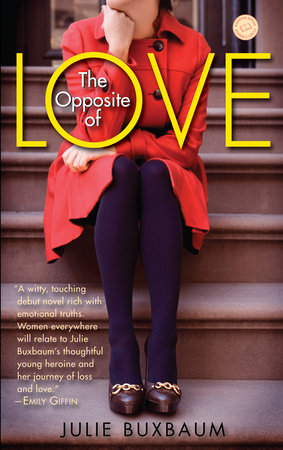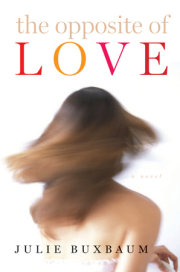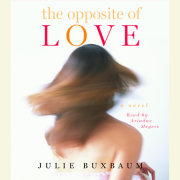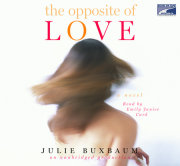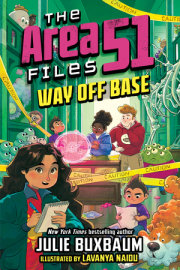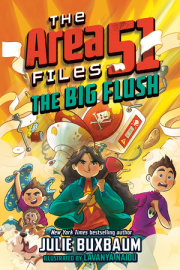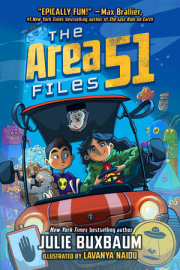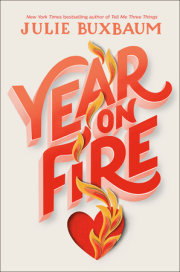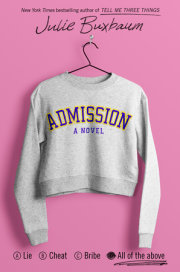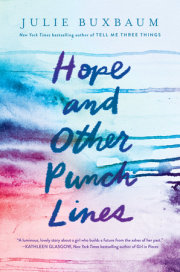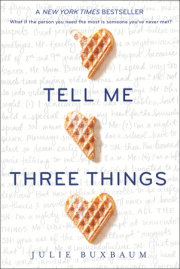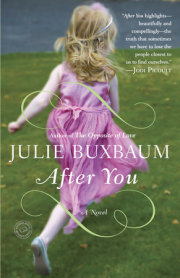Chapter OneLast night, I dreamt that I chopped Andrew up into a hundred little pieces, like a Benihana chef, and ate them, one by one. He tasted like chicken. Afterward, I felt full but slightly disappointed. I had been craving steak.
I plan to forget this dream. I will block out the grainy texture of moo shu Andrew. The itch of swallowing him dry. I will erase it completely, without lingering echoes or annoying daja vu, despite the possibility that my dream led me inexorably to this moment.
Because I already know that, unlike the dream—this dead end—this one is going to stick. I am living an inevitable memory.
Today, I break up with Andrew in a restaurant that has crayons on the table and peanut shells on the floor. A drunken young woman in the midst of her bachelorette party, wearing little more than a cowboy hat and tassels, attempts to organize a line dance. I realize now that I should have waited for a better backdrop. It looks as if I think our relationship adds up to nothing more than a couple of beers and some satisfying, but fiery, buffalo wings. This is not the effect I was going for.
I had imagined that disentangling would be straightforward and civilized, maybe even a tiny bit romantic. The fantasy breakup in my head played out in pantomime; no explanations, only rueful smiles, a kiss good-bye on the cheek, a farewell wave thrown over a shoulder. The sting of nostalgia and the high of release, a combustible package, maybe, but one we would both understand and appreciate.
Instead, Andrew looks at me strangely, as if I am a foreigner he has just met and he can't place my accent. I refuse to meet his eyes. I quell the overwhelming desire to run outside into the swill of Third Avenue, to drown in the overflow of people spilling out from the bars and onto the street.
Surely, that would be better than feeling Andrew's confusion reverberate off his skin like a bad odor. I lock my legs around the bottom of my bar stool and stare at the bit of barbecue sauce that clings to his upper lip. This helps assuage my guilt. How could I be serious about a man who walks around with food on his face? In all fairness, Andrew is not walking around anywhere. He perches there, stunned.
And I, too, am adorned in condiments. The ketchup on my white tank top makes it look like my heart is leaking.
"This was never going to be a forever, happily-ever-after sort of thing. You knew that," I say, though it is clear from his silence and from the last few days that he did not. I wonder if he wants to hit me. I almost wish he would.
Seems strange now that I didn't realize this moment was coming, that I hadn't started practicing in my head before yesterday. I'm usually good at endings—pride myself on them, in fact—and I always find people disingenuous when they claim that a breakup came out of nowhere. Nothing comes out of nowhere, except for, perhaps, freak accidents. Or cancer. And even those things you should be prepared for.
I guess I could have just let the weekend unfold, followed the original plan with military precision, and woken up tomorrow with Andrew in my bed and his arm thrown across my shoulder. Later, at work, I would have been able to tell some funny Labor Day anecdote around the proverbial water cooler, the weekend always better in rose-colored instant replay. But though I firmly believe that a tree does not fall in the forest until someone later tells an amusing story about it, I realize now that there will be no tidbits to share tomorrow. At least not funny ones. I have made sure of that.
Today, during the last moments of the Labor Day weekend, I find myself sitting across from Andrew, the man with whom I have spent the past two years, attempting to explain why it is we need to stop seeing each other naked. I want to tell him it is merely our ages—I am twenty-nine, Andrew is thirty-one—that are at fault here. We are acting under a collective cultural delusion, the one that demands random connection after the quarter-life mark, a handcuffing to whoever lands by your side during a particular game of musical chairs. This is the only way I can explain how Andrew went so out of bounds yesterday, with his intimations of a ring and permission, with his hints of an impending proposal. But I don't say any of this out loud, of course. The words seem too vague, too much like an excuse, maybe, too much like the truth.
We had never been one of those fantasy-prone couples who presumed a happy ending or named their unborn children on their first date. Actually, our first date was at a restaurant remarkably similar to this one, and rather than talking about the future, or even ourselves, we had a fierce competition over who could eat more hot wings. We left the restaurant with lips so swollen that when he kissed me good night I could barely feel it. Four months later, he admitted rushing the date because the wings gave him diarrhea. It took me two more months to confess that I had let him win.
He didn't take that so well.
Whenever the future did come up, though, we always included convenient "ifs" in our language, deflating whatever followed into something less loaded.
"If we ever have kids, I hope they have your eyes and my toes," I would say, while tracing circles on Andrew's stomach with my fingertips.
"If we ever have kids, I hope they have your intestines. That way, we could enter them in competitive eating contests and retire to Mexico on their winnings," he would say, and gather my hair into a ponytail and then let it slip back through his hands, like the strands were only on loan.
Perhaps the lesson here is to pay attention. There is always a lesson, isn't there? There has to be, because without one, what would be the point? So maybe this time it is to be vigilant, to watch out. Because somehow, sometime yesterday, without my noticing, without my perceiving, our fault line shifted.
The plan was to walk up to Central Park with our friends Daniel and Kate, to jointly celebrate our limited free time by wantonly wasting it. The curtain of Manhattan humidity had been replaced with a whistling breeze, and after a choking August, we were relieved to be balancing between seasons. Since the rest of the city had better places to be over the holiday weekend, we took advantage of having the sidewalks to ourselves. Andrew and I weaved back and forth, elbowing each other in the ribs, sticking out our feet to trip the other, pinching sides in a game of gotcha-last. I was feeling pure pleasure, not dithering happiness. No buzz of anxiety or free fall in my stomach to warn of what was to come.
Daniel and Kate walked in front of us. Her engagement ring, whose presence loomed out of proportion to its size, would occasionally catch the sun and paint shadow shows on the sidewalk. Our closest friends—we could still say "our" yesterday, we were still a "we" then—and somehow, more than that, they were also symbols of how things can be for some people, how effortless commitment can look. Daniel and Kate were the adults leading this brigade, though at a languid pace, since it was clear that we should savor this last bit of summer before the trees shed their leaves to make room for the snow.
After I caught Andrew in a sneaky gotcha-last move—the never-fail distract-and-mislead maneuver—he ended the game by lacing his fingers in mine. We walked that way for a while, hand in hand, until I felt him start to toy with my empty ring finger, wrapping it with the whole of his palm in an infant grip. And though he kept quiet, it was as if he said the words out loud. He was going to ask me to marry him.
His thoughts, I could tell, were wholly methodical—the hows of proposing, not the ifs or the whys. Finding a free day to take the train out to Connecticut to get my father's permission or to Riverdale to ask my Grandpa Jack. Conjuring up the name of my favorite restaurant and his family jeweler. No meditation on whether he knows me well enough to zip together our futures, no concern that he can't decipher the infinite thoughts that run through my inaccessible brain at any given moment. But that's who Andrew is, ultimately; someone not overly bothered by the ifs and the whys.
Before I could wonder if my rising panic was merely the result of an illusion, he pulled me toward a jewelry-shop window, his arm cupped around my back. I imagined the rings winking at me, laughing at my discomfort.
"Do you like anything?" he asked.
"That bracelet is pretty," I said. "Oh, and those earrings are gorgeous. I like how dangly they are. I never wear dangly. And, look, they have a one hundred percent money-back guarantee. I like when you can get your money back."
"How about those rings?"
"Too sparkly. I prefer the dangly earrings."
"Come on, what kinds of cuts do you like? Princess, oval, marquise?" The man had clearly done his homework. This is not the first time he has thought about this, I realized.
Fuck.
"I don't know the difference. It's not my sort of thing," I said, which was true. I thought Marquise was an island in the Caribbean. And then, because I didn't know what else to do, I pointed far into the distance.
"Look!" I said, like a child who has just learned a new word. "A puppy."
The rest of the afternoon unraveled like a well-scripted sitcom, with the four of us playing a silly game of monkey-in-the-middle in the park, jokingly competitive, and tackling one another unnecessarily. I was perhaps the silliest of all, overcompensating for the dread I was feeling, somehow believing that goofiness would stave off the inevitable.
But there was no way out, really. I had made a promise not to work this weekend, even "accidentally" left my BlackBerry behind in the office, something I had never done before in my almost five years as a litigator at Altman, Pryor and Tisch, LLP. I was off my leash, which had seemed like a good idea before the weekend, when I thought I needed a break from the billable hour, not from my life. I hadn't known I would want to dive right back into the pile of papers on my desk, run away to a place that has no room for words like "our" and "we."
But work would have been mere procrastination. I had come to my decision in front of the jewelry store. I was going to break up with Andrew before he knelt down and asked an impossible question. I would shatter our naive and comfortable world like the kid who plays with a gun in an after-school special.
Self-awareness is a slippery thing, though, when you find yourself at odds with a "supposed to" in life. I understand that I am supposed to want to marry Andrew. That some women wait their whole lives to stand before a bended knee or fantasize about a sparkly stone that silently announces to the world, See, someone loves me. Someone picked me. That some women dream of that choreographed first dance with their new husband before the crowd erupts into a vigorous "YMCA."
Or, better yet, that almost all of us want someone to be our very own partner in crime, to drive us home from the airport, to cheer when we succeed, and to hold our hair when we vomit. And if I am honest with you, I do want that, in one form or another.
But getting married? To Andrew? 'Til death do us part? I can't do it. I would be nothing more than a fraud, a pretend grown-up, a con artist playing the role of bride. I don't even want to spend the rest of my life with me. How can Andrew? And how do you explain to someone you love that you can't give yourself to them, because if you did, you're not sure who you'd be giving? That you aren't even sure what your own words are worth? You can't tell someone that, especially someone you love. And so I don't.
Instead, I do the right thing. I lie.
"Well, I guess that's it, then," Andrew says to me now, his voice barely audible over the jukebox. His tone is hard and resigned, without even a hint of pleading. He handles this like a professional. Clinical acceptance.
"I'm sorry."
Andrew just nods, as if he is suddenly sleepy and his head is too heavy a burden to carry.
"I want you to know I care about you a lot," I say, like I am reading from a book on how to break up with someone. I even have the nerve to add "It's not you. It's me."
Andrew lets a strangled laugh escape. I have finally provoked him. He has moved from confusion to sadness and now, finally, to what I am most comfortable with, anger.
"You're fucking right. It is you, Em. Don't you worry. I know that this is all about you." He grabs his jacket and is about to leave. I want to stop him, to prolong this terrible moment before finality. But there is nothing left to say.
"I'm sorry," I whisper, as he throws some bills onto the table. "I really am." This takes the air out of the moment, and the tightness in his shoulders softens at the sound of my words.
"I know," he says, and his eyes bore into mine. Surprisingly, they are not filled with anger or sadness or love, but with something that looks a hell of a lot like pity. Andrew clears his throat, kisses me on the cheek, and walks calmly out of the restaurant.
Within seconds, he gets absorbed into the swell of Third Avenue. And it is me who is left sitting alone, watching the door and chewing on the bones of his leftover hot wings.
I walk the twenty blocks to my apartment, and it helps to clear my head. The air tingles in my nose, another hint that autumn will soon relieve summer. I take Madison Avenue and watch the crowds savoring the last few moments of the long weekend and the season, sitting with shiny cocktails on makeshift street-level patios. I envy them their last taste of freedom before the workweek. For a moment, I consider stopping for a cosmopolitan at a swanky bar; maybe I can pretend to be one of them, in camouflage, and postpone feeling anything for another hour or two.
Instead, I keep going. I focus on the street numbers as I walk; the counting slows my pulsing thoughts. Fourteenth, you did what you had to do. Thirteenth, we were never meant to be. Twelfth, this is my fault. Eleventh, I did this. I find comfort in the rhythm and that I’m solely responsible for how things turned out. I know I let the relationship go too far. I should have said my good-bye months ago, when it would have hurt both of us less, long before I was steered in front of a jewelry-store window. At least, I reason, at the very least, I took back control. Tenth, things are under control. Ninth, you will be fine. Eighth, he would have left anyway, sooner or later. He would have left you anyway.
When I get to my building, Robert, my doorman, ushers me inside. He is in his early seventies, with a comically white head of hair and matching beard. He looks like a benevolent God or Santa Claus and has the same tendency to meddle. Robert’s constant presence, even his rapid-fire questions, soothes the tenants of the building, which is filled with mostly studios; we know that someone will be there when we get home, that someone will ask how our day was, that someone will notice if we don’t come back at all.
“Where’s your other half tonight?” he asks.
“Staying at his place.” He smiles at me and steps out of the way so I can get into the empty elevator. “Have a good night.”
“Good night, Emily.”
From now on, my day will end right here. Right at the front door. Robert’s is the last voice I will hear most evenings. His is the last face I will see.
Copyright © 2008 by Julie Buxbaum. All rights reserved. No part of this excerpt may be reproduced or reprinted without permission in writing from the publisher.

